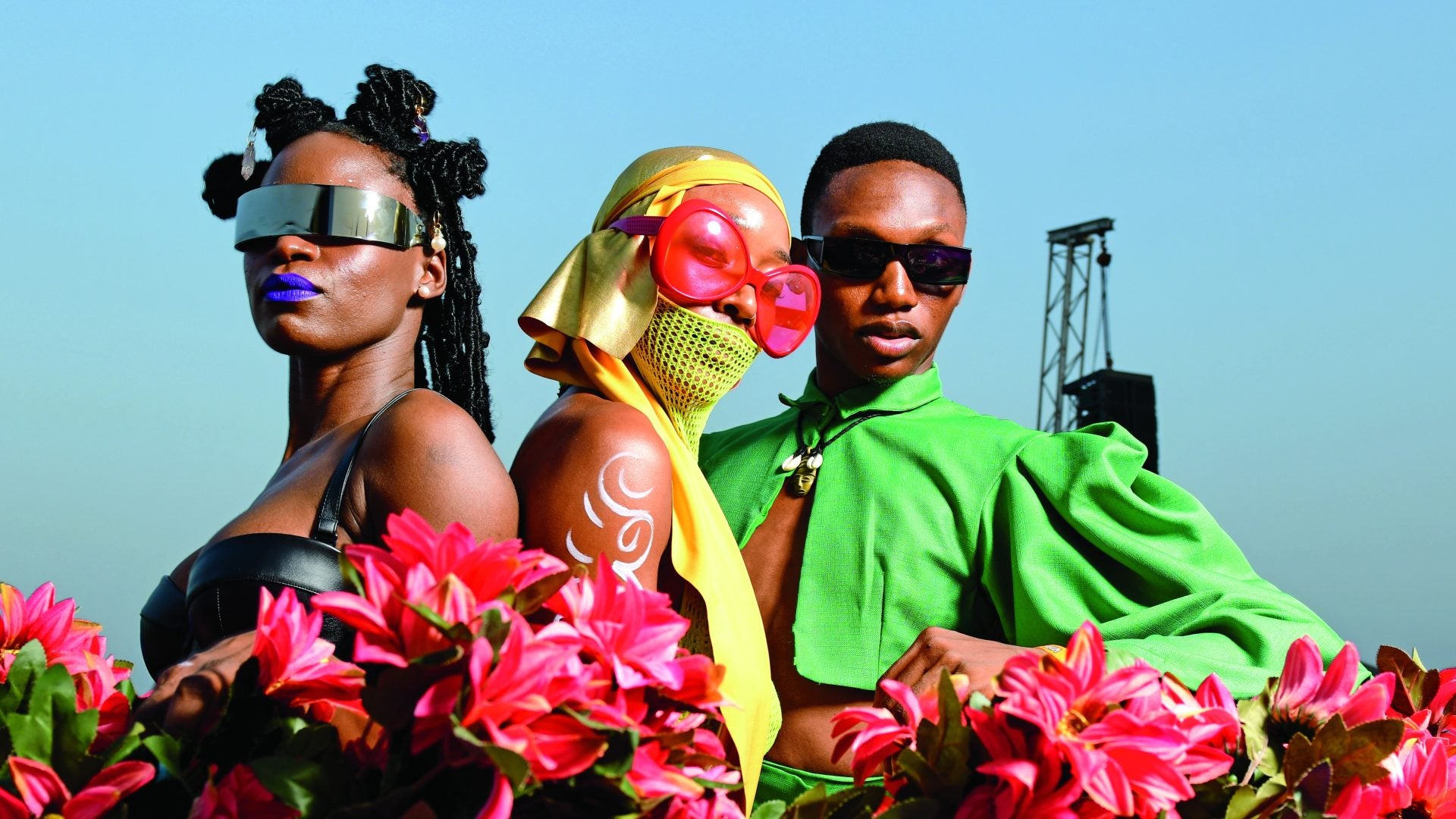
In the United States, the holiday season is synonymous with festive food, family time and fellowship. But on the Mother Continent—Nigeria and Ghana, to be exact—December brings other joyful celebrations as well. Affectionately known as “Detty December,” this is the month that the Western region of Africa hosts a season-long lineup of -festival-hopping partygoers at carnivals and concerts, inspiring thousands of people from across the diaspora to flock to their ancestral land for the holidays.
Though many aren’t quite sure how Detty December originated, what was once a tradition reserved for people on the continent has become a time when overseas visitors, including Black Americans, are choosing “home” away from home and making it their own.
Some say that this particular holiday custom emerged during the inaugural Calabar Carnival in 2004, in the southeastern Nigeria region; others claim it became popularized during Ghana’s 2019 “Year of Return.” The campaign, launched by the Ghana Tourism Authority, encouraged brothers and sisters of African descent to make the voyage to Ghana and unite as family of the diaspora. Since then, the actual number of visitors has far exceeded expectations, with about a million people making the trek in 2019—a rise of 45 percent from the previous year, which reflected a significant increase in travelers from the United States and the United Kingdom, according to the BBC.
Yet even as tourists converged on the continent in ever-rising numbers, few could have predicted that Detty December would become an annual pilgrimage for so many global travelers, who come to the city hot spots of Lagos and Accra for a month of music, arts, culture and entertainment.
One event in particular, Afrochella—which has now been rebranded as AfroFuture—is sandwiched between Christmas and New Year’s Eve. Held at the peak of Detty December in the city of Accra, the music and cultural festival is staged annually at Accra’s El Wak Stadium. It was first launched in 2017 as the brainchild of Abdul Karim Abdullah, AfroFuture’s New York–born CEO and cofounder. What started as an idea for a food festival became a 4,000-attendee event in its first year. It has since exploded into one of the most-lauded events during the holiday season in Africa, with attendance numbers hitting 31,000 in 2022.
While this year marks the first time that the festival will not be under its original Afrochella imprint, the occasion is sure to be just as magical, if not more so. The renaming of the festival comes on the heels of Coachella organizers suing Afrochella for trademark infringement, citing a confusion between the competing brands. But make no mistake, whether “chella” is in the title or not, this event remains deeply relevant for Black attendees, especially those traveling to the continent from abroad.
AfroFuture Fest occupies its own unique lane, and by design, it shares the beauty of Ghana’s cultural identity with the world. But what makes this festival so distinctive is its organizers’ ability and determination to support the Ghanaian economy. Abdullah, whose business partners are based in Ghana, strives to ensure that everyone—from production staff and event designers to maintenance workers and vendors—is from the country, and that every extra dollar poured into the festival goes directly into local hands. As a result, the economic impact has been staggering, with approximately 16 percent of Ghanaian tourism income for the year of 2019 coming from AfroFuture Fest, and an average of $2,650 spent by each festival attendee.
“Our numbers have grown since we launched, so we know that our impact is very visible on the continent,” says Bronx native Abdullah.
“We are excited by the transition of Afrochella to AfroFuture Fest,” says Akwasi Agyeman, CEO of the Ghana Tourism Authority. “The event has become a flagship of our December in Ghana program. It brings in a lot of visitors and, with them, attendant economic benefits for our industry and our country. Hotels peak in occupancy; airlines are fully booked; and the entire value chain of tourism thrives during the period.”
With attendees representing people of African descent from regions as far flung as the U.S., U.K., France, Germany, Spain and Switzerland, the brand has expanded to speak to these patrons, with spin-offs being held this year in New York, South Africa and London.
“Our goal is to be able to touch all parts of the continent,” explains Abdullah. “So we’re also doing a lot more events involving Francophone Africa and Southern Africa. A lot of our global markets don’t have experiences that are similar to what we’re doing in Ghana, so this is our opportunity to market to the festival more broadly and tell them about what’s happening and what we’re doing.”
Carrying the torch of Black nationalists and civil rights leaders such as Marcus Garvey—who consistently preached that Black Americans should “go back to Africa”—AfroFuture Fest has given this message of returning to the ancestral homeland a new meaning.
“We want to grow and do a lot more storytelling,” says Abdullah. “It’s one thing for the diaspora to come together to enjoy music, fashion, food and art, and have a great time in Ghana, but it’s another thing for us to be able to uniquely tell the nuanced story of the continent. We don’t know enough about each other—and that fosters competition rather than collaboration. By telling more stories, and sharing our culture and uplifing what each culture means, it gives us an opportunity to build alliances and increase the appreciation for all those cultures that show up at our festival.”
There is something incredibly special about celebrating on African soil in December—but there’s something even more special about a “for us, by us” festival accompanied by warm sun, sweet food and welcoming people. AfroFuture Fest has not only changed the tourism outlook on the continent, but it has also expanded the world’s view of what it means to vacation at the beach while celebrating Black culture. This is for Ghana—and by extension, for the entire diaspora.
PHOTO CREDITS: COURTESY OF AFROFUTURE/AFROCHELLA FESTIVAL